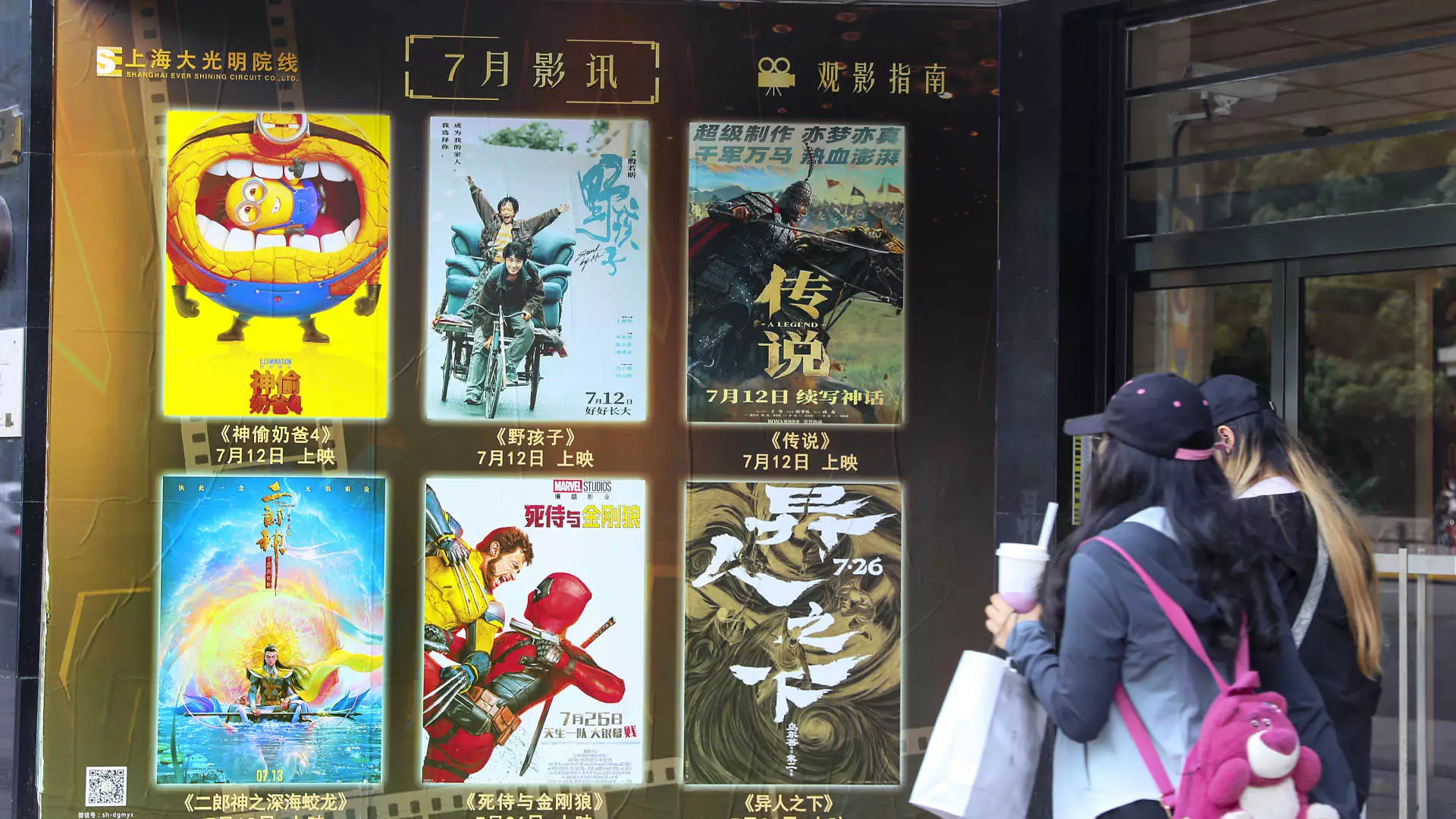The film industry, emblematic of American cultural prowess, finds itself entangled in the crossfire of an escalating trade war courtesy of former President Donald Trump. What began as a skirmish over tariffs has morphed into a full-blown crisis, one that is not merely affecting the wallets of studio executives but also threatening the very foundation of how films are produced and distributed. As China retaliates against American tariffs, Hollywood’s once-thriving partnership with the Chinese market is collapsing, revealing the fragility of an industry that may have leaned too heavily on foreign revenues.
The Retreat from the Chinese Market
For years, American studios have depended on the booming Chinese box office to enhance their profit margins, often tailoring their films to cater to local tastes and sensibilities. But much like a beleaguered veteran looking for glory, Hollywood now finds itself struggling to regain footing in a market that is increasingly embracing its own domestic films. The battle for audience attention has shifted, with local Chinese productions capturing the hearts—and wallets—of moviegoers. The emphasis on home-grown content has made it painfully clear that Hollywood’s once-coveted status is fading.
The words of Ann Sarnoff, former CEO and chairwoman of Warner Bros., resonate deeply: “The Chinese market has become very challenging for U.S. studios.” This isn’t just a case of fluctuating box office numbers. It’s a seismic shift in audience preferences that ultimately translates into a harsh economic reality. The expiration of the U.S.-China Film Agreement in 2017, which had once promised a steady stream of American films for Chinese audiences, now feels like an unfulfilled prophecy.
Financial Forecasts Gone Awry
As the box office statistics roll in, U.S. studios are scrambling to recalibrate their financial projections. No longer can they rely on the Chinese market as a significant revenue booster; many studios now place little to no value on potential earnings from this once-promising demographic. If this regression continues, the financial implications will be dire. The scarcity of blockbuster hits in China, combined with increasing competition from charismatic native productions, underscores the vulnerability of the Hollywood model that has dominated for decades.
Consider the data: In 2019, several American films broke the $100 million threshold in China, with “Avengers: Endgame” standing out as a monumental success. Fast forward to the present, and it’s a different story. The struggle for success underscores a staggering drop-off—only a handful of American titles have managed to achieve similar results over five years. This decline suggests that Hollywood is not facing mere obstacles but an existential crisis that necessitates a reevaluation of its strategies.
Hollywood’s Technological Legacy Under Siege
The broader implications of declining engagement with China run deeper than just box office sales. As the country’s own filmmaking technology progresses at a breathtaking rate, Hollywood risks losing its edge as the global leader in cinema. Intellectual property concerns, combined with the rapid development of local talent, could someday create an impenetrable barrier for American studios seeking to step back into the fray.
With the likes of “Ne Zha 2” setting new records, there lies a disheartening truth: more sophisticated filmmaking technology in China is producing blockbusters that match or exceed their American cousins. The future of global cinema could very well be stage-managed by an industry that America once dominated, considerably altering the landscape of Hollywood’s market strategy.
The Volatility of the Stock Market
As stock prices for major studios plummet amid these developments, Hollywood executives are navigating treacherous waters fraught with uncertainty. The disparity between fluctuating tariffs and currency valuations further complicates the financial calculus faced by industry giants. Currency devaluation can boost international box office returns, but it simultaneously heightens operational costs, forcing studios to reconsider their fiscal strategies in light of unprecedented external pressures.
Hollywood, enamored with the glamour of the big screen, now stands at a crux where long-held assumptions about profitability are contorted by geopolitical tug-of-war. The trade war with China, far from being just another talking point in the political spectrum, becomes a cautionary tale of unintended consequences rattling an entire industry.
The reverberations of Trump’s trade war aren’t merely a matter of dollars and cents. They represent a transformative moment in the narrative of Hollywood, as it encounters both new threats and opportunities in its quest for global dominance. The stakes are high, and the industry must adapt to a rapidly changing world if it hopes to reclaim its place as a cultural cornerstone.

